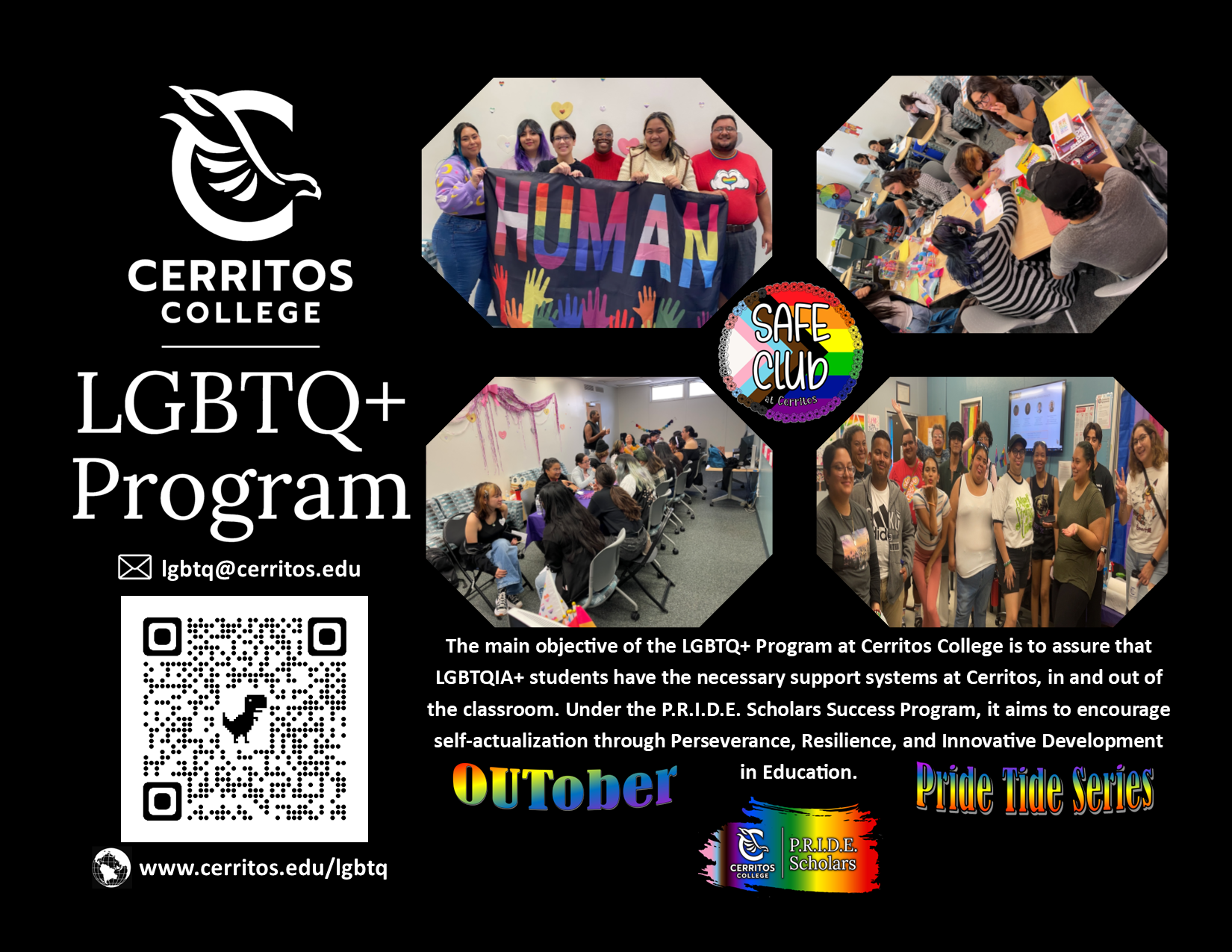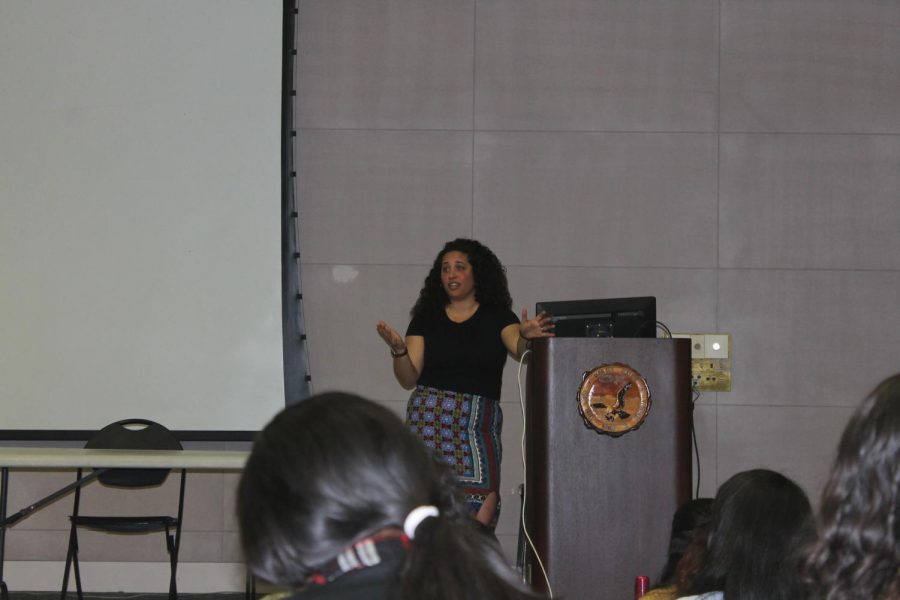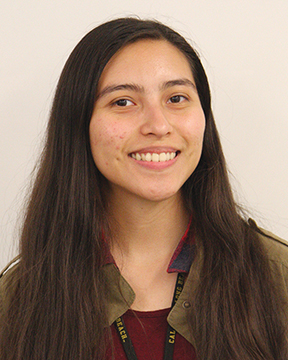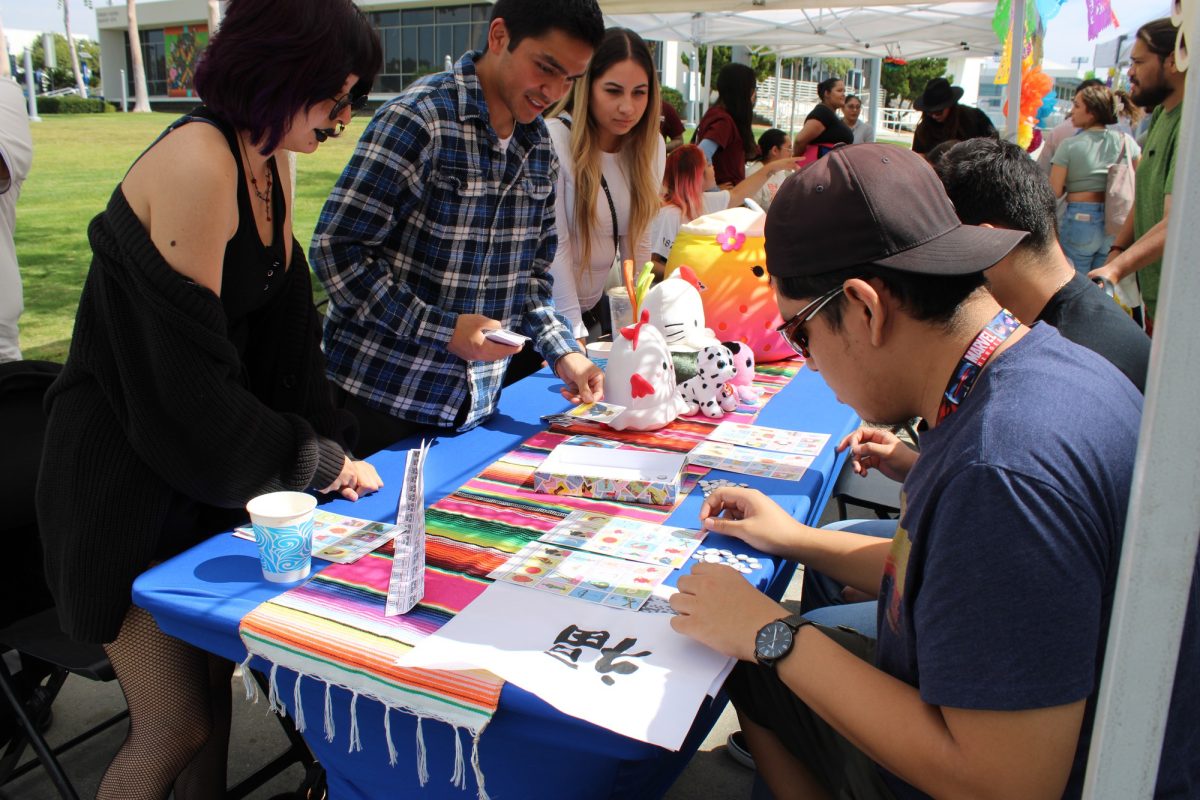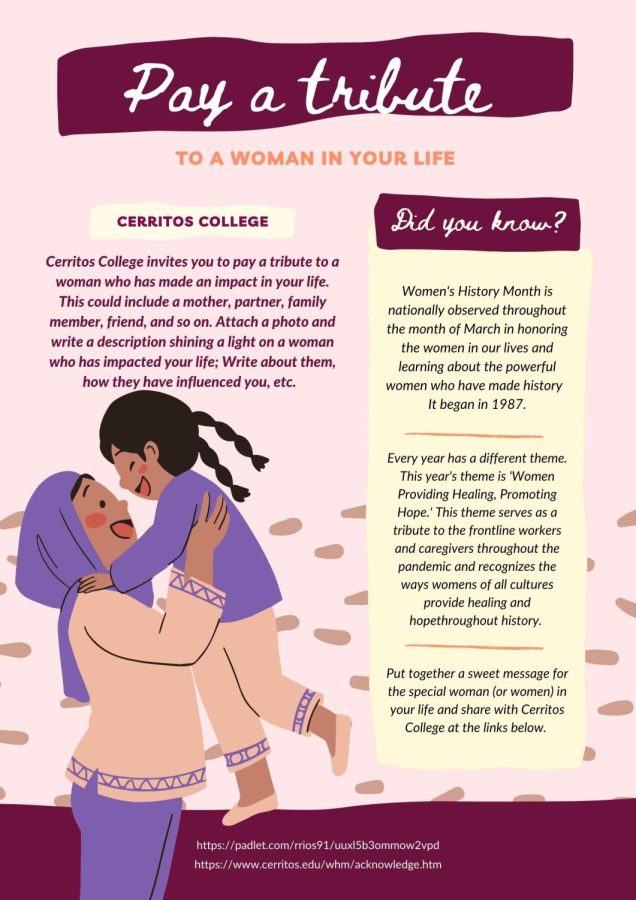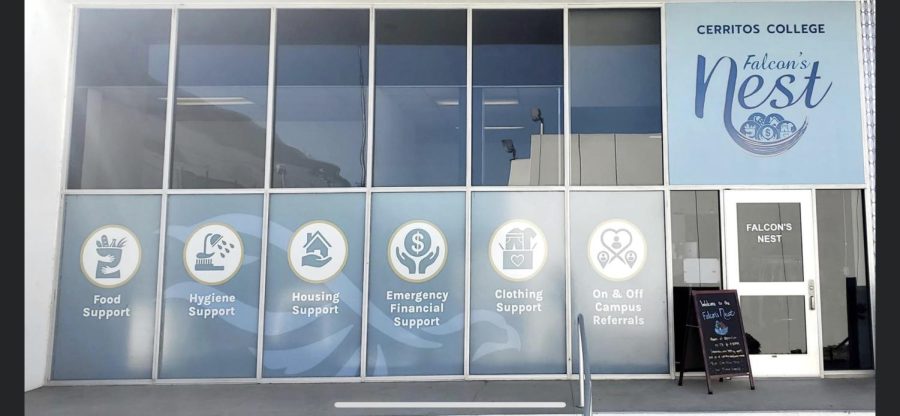As part of Women’s History Month on campus, a presentation was held to discuss women’s experiences in religion and religious discrimination. This presentation utilized Women’s and Gender Studies professor Dr. Mariam Youssef’s personal experience within her religion to explore how women are affected within religious communities.
Youssef shared both her and her family’s experiences being Coptic, an ethnoreligious minority in Egypt, and how religion played a huge role in her life currently and as she was growing up.
With her connection to her faith, especially through music, she felt at home. Coptic chants, spoken in the Coptic language, which is according to her is a “dead language kept alive through the church”, meant a lot to her.
Youssef said “I would go to classes, I would learn to read and write [Coptic] on my own…I did all this on my own because I was really motivated by my love for this ancient, mystical, and mysterious music…”
However, within her religion women were not allowed to leave the congregation singing or chanting, and even said that she was “discouraged from attending classes” to learn the chants.
She was “hurt very deep, deeper than anything” by this considering what a huge part religion had in her life, however she was determined to pursue it no matter what. Additionally, with the help of her family, she established an all-female congregation.
“ ‘Why can’t girls chant?’ If no one can give us a good answer, then this needs to change…” Youssef stated, when she discussed how hurt she was by how hard she worked to learn more about her faith and not be allowed to share it.
Mie Daniels, mathematics major, said that ”It took a lot for [Youssef] to accomplish her dreams…I found the presentation very interesting, I liked it.”
Through her congregation, established 14 years ago, she now teaches girls and young women to learn chanting. In addition to learning chanting, they are also taught how to read and write in Coptic. Youssef stressed that they have to be “on point.”
“If you are the first to do something, there are no slip ups…”
Youssef said that their congregation (growing within Southern California) visits other Coptic churches to help them get a set of girls involved in chanting.
Additionally through this establishment of the female congregation it allowed for them to “get their foot in the door” and ask more questions.
Youssef further explained, after returning to go to Grad School and studying women in religion, she wanted to see how women were viewed in religions aside from her own. Continuing with the discussion, she mentioned that “a lot of religious communities don’t do a great job at hearing women’s voices, respecting women, letting women be in positions of leaderships…”
Concluding the discussion, she continued by saying that she wanted to look further into what was causing that and became interested especially in the role that “survival” plays in religious communities.
For instance, Youssef said that looking at religions facing discrimination, genocide, or persecution they all seemed to have a pattern where they would push women to the side.
“When a community finds themselves in that situation where they don’t know if they are going to make it…they start to push women to the back even further…”
The common threads that tied these “Survival Communities” together, in regards to how they viewed women was:
- They get defensive
- Exhaustion on maintaining survival
- Women are expected to be the backbone and keep things going, behind the scenes
With the anxiousness of discrimination and criticism, not being able to maintain the emotional and mental energy, Youssef said that this creates an inability to have women be involved in conversations because they don’t have the resources to maintain themselves. With that “women pay the price.”
Haley Barajas, zoology major, said that the presentation was “very heartfelt and opinionated. It’s inspiring to hear what she works for…”
When asked about what she hopes to see for the future of women in religion, Youssef stated that “We are playing a long game, but it’s important to empower a new generation of leaders.”
” class=”inline-comment collapsed”>

